Blackfin Resort and Marina, Marathon, Florida, is an island paradise and a welcome slice…

Local Knowledge is Important When Cruising Desolation Sound
1.
Local Knowledge is Important When Cruising Desolation Sound
When setting out to explore new cruising grounds it’s important to have a plan, ours is created first by doing as much research as we can from charts and guide books followed up by input from other cruisers we know, ones with a great deal of experience in the area we are headed to. However, over the years we’ve learned the best way to make sure you hit the high spots of an area is to talk with a boater who lives and cruises there.
We Sought Local Knowledge Before and During Our Cruise in Desolation Sound.
With that in mind, I made it a mission to gain as much local knowledge as I could before and during our Ranger Tugs 2013 Desolation Sound trip so we could maximize our experience during our one month in British Columbia. The first part of our plan was to poll as many Canadian Ranger Tug owners in Ganges during our two-day stay, ones that know the harbors, marinas, and anchorages in order to find out the “must-see” places, what to avoid, when to go, where to anchor, what hazards might lie in wait and which marinas are worth visiting. Of special concern to us on this trip was where we could get fresh water and where could leave off garbage during long periods of anchoring out.
The second part of our polling takes place out on the water, often when we’re in an anchorage with other boaters. We’ll take a dinghy ride around the anchorage before or after dinner to see whom we can meet. Of course, our main objective is to socialize a little and meet other boaters who like us must love to boat and share information; the chances are very good that this is their known cruising ground. We love to see where people came from on their boats, where they are going, and why. This method of gaining information is invaluable to us as cruisers.
During our trip we definitely don’t want to miss anything of value; we want to make sure to make the most of our time by having a list and a rough plan. With that in mind, I made it a mission to gain as much local knowledge as I could before and during our trip, so we could maximize our cruising experience while in the waters of British Columbia. One thing we learned right off the bat, after talking with boaters experienced in the area, was that taking time to go up to the Broughtons, also on our rough list, might be taking on too much of an area to explore. Wishful thinking on our part that we might get that far I guess
The first part of our search for information began shortly after we met Tracy and John, on Sea Change (above), when we arrived at Ganges. We found out they live on Nelson Island in Quarry Bay, by Pender Harbor located at the mouth of Jervis Inlet, which leads to Princess Louisa Inlet and Chatterbox Falls (our cruising destination when we begin our trek south after leaving Desolation Sound). So they are very familiar with not only the Desolation Sound area but Jervis Inlet as well. John and Tracy offered to go over charts with us and in doing so pointed out a few spots they felt we shouldn’t miss.
We had met Charles and Sheri, on Danca (above), when we arrived in Comox, the second day of our group cruise up to Desolation Sound. They told us they live on Quadra Island, across from Campbell River, they were just that day joining the procession of Ranger Tugs from Comox to Gorge. When we finally made it to Gorge, the spot where everyone later dispersed and headed out on their own, we remembered Charles and Sheri knew these waters quite well, so while there I asked Charles if he’d come to our boat to go over charts, he was very generous with his insights on Desolation Sound. Charles’ input paid high dividends on our first days out with scenic anchorages, hiking trails, and his scoop on some freshwater lakes we could hike to while out on the hook.
We took copious notes from any meetings with Canadian boaters both during the Ranger Tug cruise and from others we met en route, we made markers on our GPS chart plotter, marking anchorages and harbors they talked about so we would remember their suggestions.
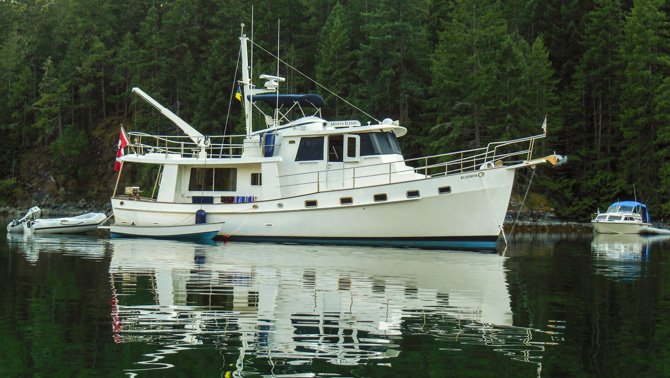
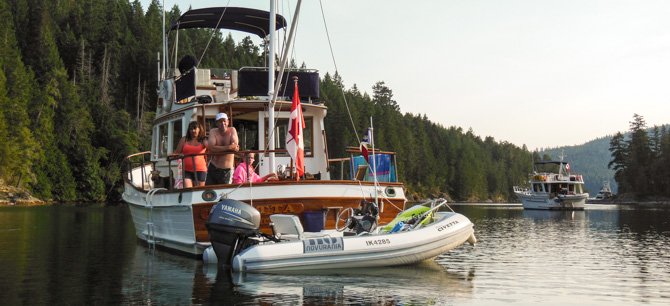
The second part of our quest for information began our first night out from Gorge, soon after we got settled into the anchorage at Grace Harbor (a suggestion of Charles). At twilight, just before a late dinner, we took a dinghy ride around the anchorage to see whom we could meet. There must have been 20 boats in the anchorage with plenty of room for privacy and to swing free. Our method of meeting folks is simple, we’ll coast by any boat we see people sitting or working on outside, often a smile or a wave is all the invitation we need to glide up a little closer. The rest is easy; we exchange pertinent information about our boats, where we live, how long we’ve been boating, and such. We try to glean a lot of cruising information from those qualified to contribute. This particular night we talked with people on three different boats. The boat closest to us was a Kadey Krogan 44, Maria Elena (above top), the owners, Dennis and Marilyn are from Garden Bay, BC, we exchanged boat cards and general information about places we’ve both cruised. Next, we stopped and chatted with a friendly family on an old trawler, Civetta (above-bottom).
Art and Christina, on Lucky Puppy (above), were the most helpful, they had stopped over earlier in the day, while out in their dinghy, to inquire about our boat; they had promised us a boat card, so we headed over to their boat to talk some more.
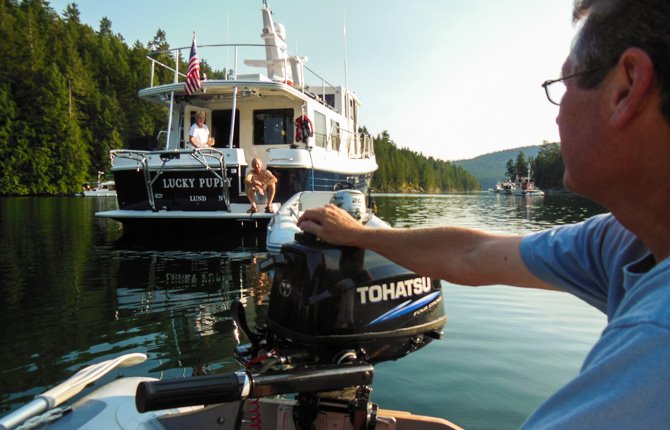
We’ve run into Mac, on Passage Weaver (below), a few times since we met him in Ganges, BC. Every time we talk with him we learn more about his experience and acumen as a boater, the kind that comes naturally to someone born to be on the water. The last time we ran into him was when we were both at anchor in Squirrel Cove. After he saw us take two large trash bags to the town dock, he dinghied over to chat and we soon learned a few things about garbage management when at anchor or remote marinas for extended periods of time. Of course, we were already separating garbage to recycle when we got to a garbage drop-off, but Mac suggested we also dry out all paper and plastic, to eliminate the offensive aroma, before putting it in its designated bag. And when in a camping area, where campfires are allowed, you could burn your discarded paper products. Not sure why we never thought of this, but it makes sense to collect and take any compostable matter for a dinghy ride to shore for drop-off in the woods.
We have to say that we learned a lot this trip, not only about the local cruising knowledge we sought and received but how to exist on the hook for long periods of time. If you are receptive, there are always boaters out there who have a wealth of local knowledge to share.

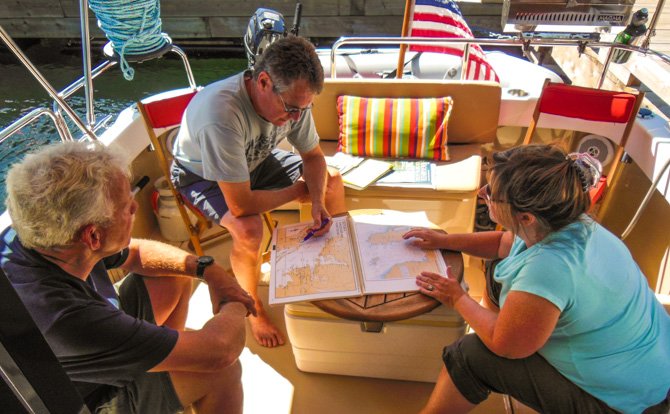
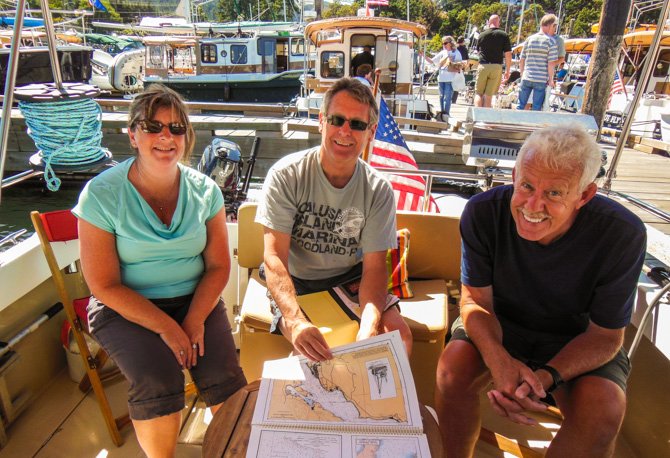
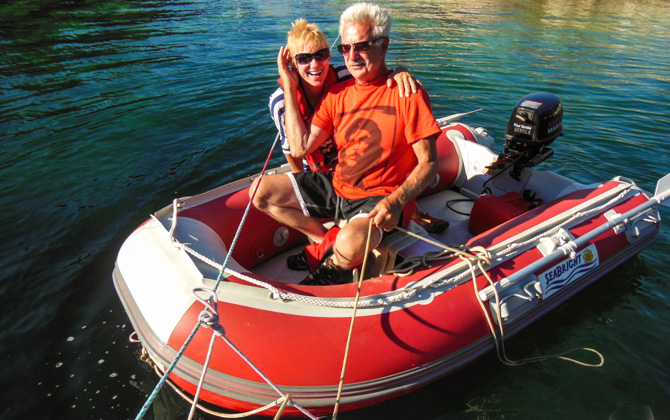
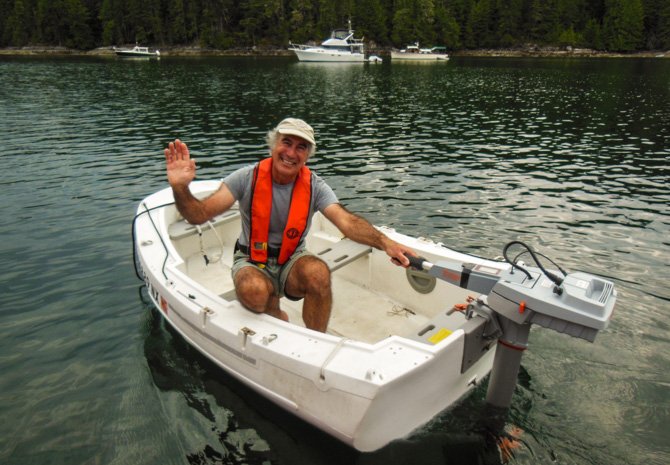
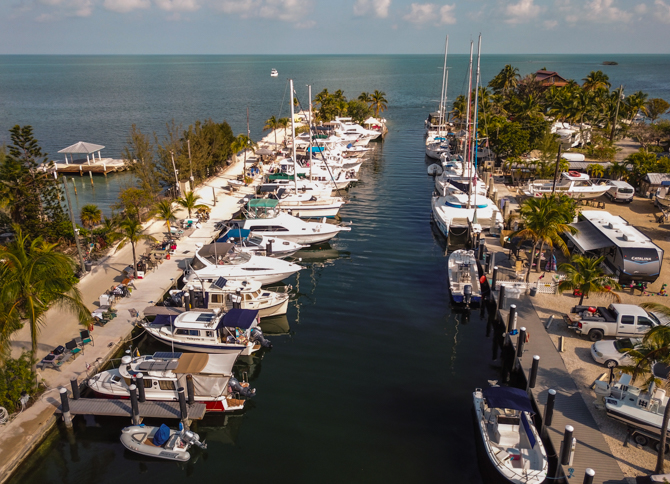
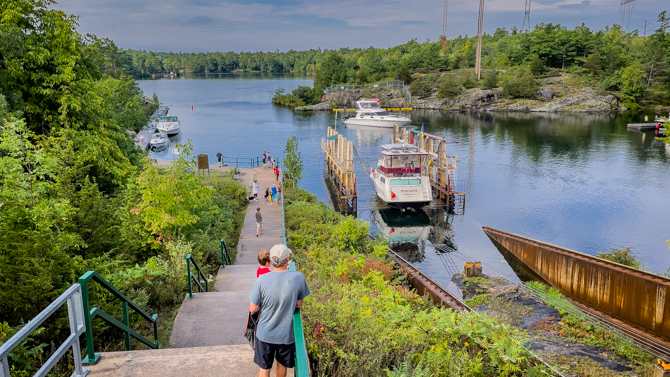
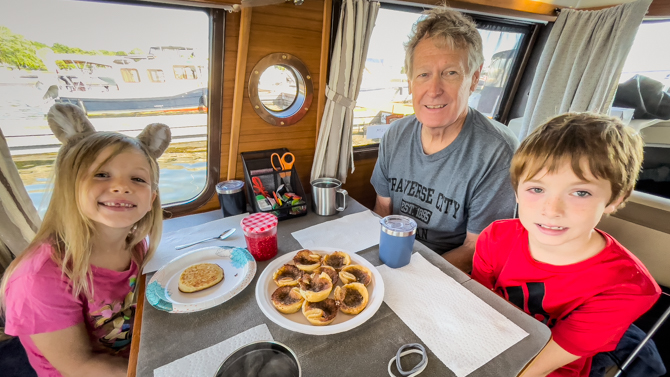
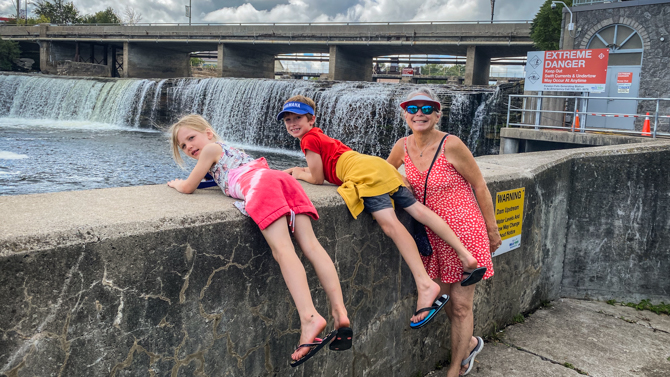
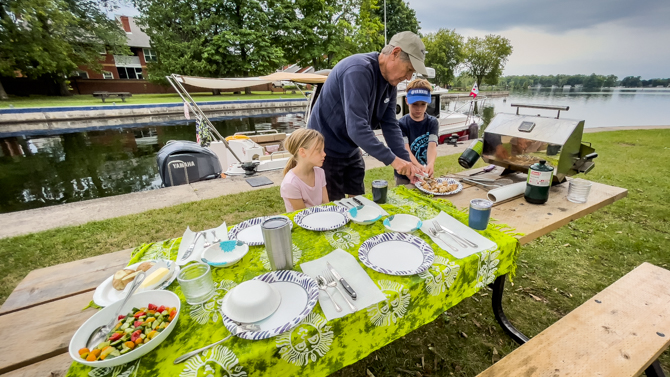
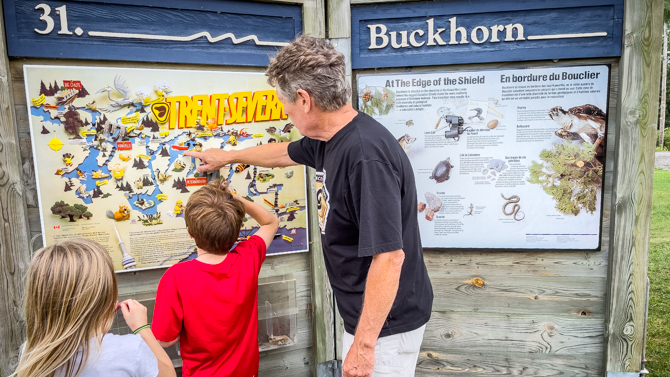
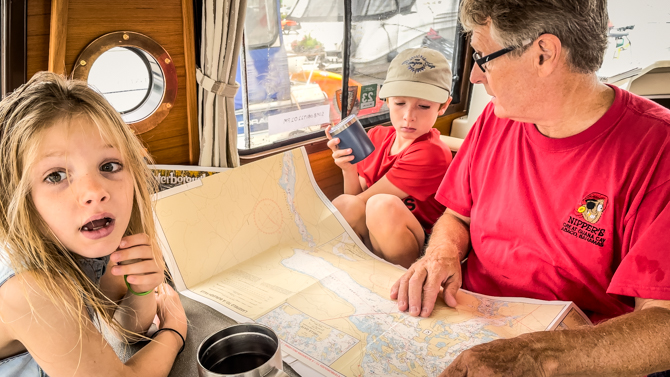
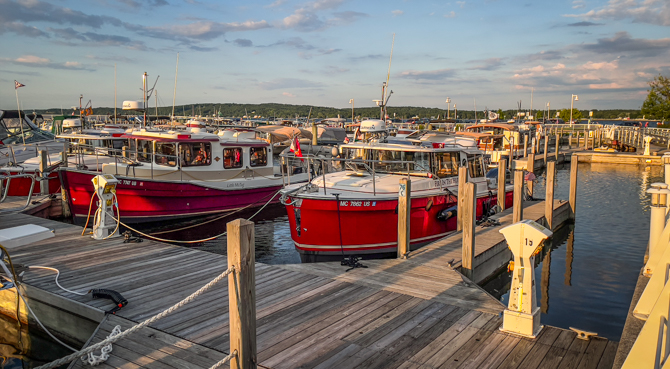
This Post Has 0 Comments